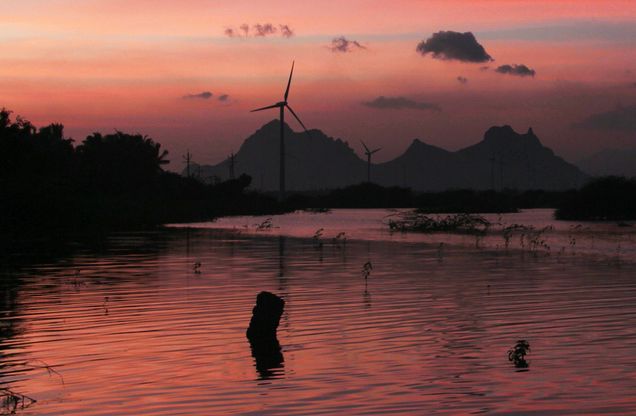Climate change and policy responses to climate change pose significant risks to financial and fiscal stability, poverty and inequality and the long-run growth prospects of the world economy.
As the only multilateral, rules-based institution charged with promoting the stability of the international financial and monetary system in order to enable longer-run growth, the International Monetary Fund (IMF) has a central role to play in the transition to a low-carbon and resilient global economy.
To that end, the Task Force on Climate, Development and the International Monetary Fund is a consortium of experts from around the world utilizing rigorous, empirical research to advance a development-centered approach to climate change at the IMF. The global community must support climate resilience and transitions to a low-carbon economy in a just manner, and the role of the IMF in supporting a globally coordinated response is vital.

With just six years until 2030, there is an urgent need to unlock investments and mobilize affordable climate finance in a fiscally sound and financially stable manner. A swift transformation of the IMF is necessary for aligning the international financial architecture with shared development and climate change goals.
A new report pushes for a faster and deeper evolution of the IMF that is both development-centered in its approach to climate and embraces an investment push as a priority goal. It presents three core policy recommendations animated by an IMF 2030 Action Agenda, comprised of concrete reforms to be implemented over the next 12 months.
Read the Report Read the BlogLatest Work
Don't Miss a Publication-
What Role for the Resilience and Sustainability Trust in Creating Fiscal Space for Climate Vulnerable Countries?
April 09, 2025By Jwala Rambarran and Sara Jane Ahmed The Fourth International Conference on Financing for Development (FfD4), which takes place at the end of June in Spain, will attempt to forge the main global policy framework for development finance over the next... [ More ]
-
Strengthening the International Monetary Fund’s Resilience and Sustainability Trust to Promote a Just, Global Climate Transition: Early Evidence from Barbados and Jamaica
April 09, 2025As the only multilateral, rules-based institution responsible for promoting global macroeconomic and financial stability, the International Monetary Fund (IMF) has a central role to play in helping its member countries urgently unlock and mobilize substantial and affordable climate financing. In... [ More ]
-
Advancing Climate Policy at the IMF
December 17, 2024While the macroeconomic significance of climate change has been understood in academic scholarship for a long time, policy engagement on this topic is rather new. While initiatives such as the Network for Greening the Financial System and the Coalition of Finance... [ More ]
-
Webinar Summary – Climate, Development and International Financial Institutions: Perspectives from the Global South
November 07, 2024By Samantha Igo On Tuesday, October 22, 2024, the Boston University Global Development Policy Center and Global Economy and Development at the Brookings Institution co-hosted a high-level panel alongside the 2024 International Monetary Fund (IMF)/World Bank Group Annual Meetings in Washington, [ More ]
